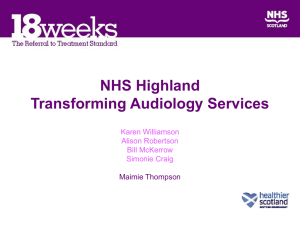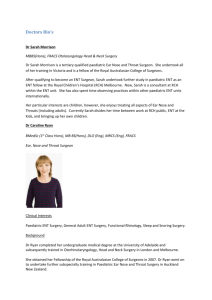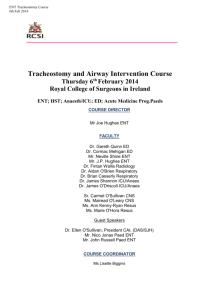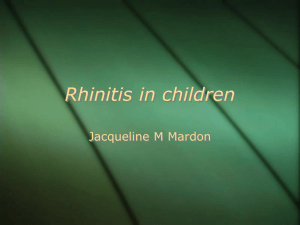Personal Profile I am a 61 year old, white male, 6` tall and weigh 150
advertisement
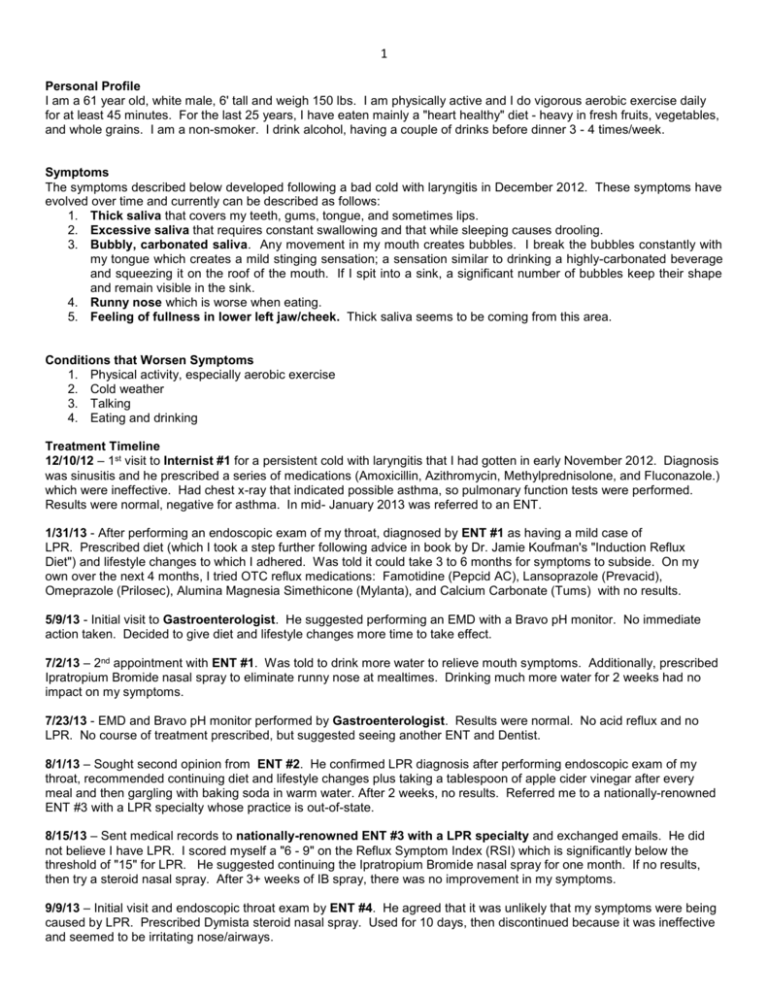
1 Personal Profile I am a 61 year old, white male, 6' tall and weigh 150 lbs. I am physically active and I do vigorous aerobic exercise daily for at least 45 minutes. For the last 25 years, I have eaten mainly a "heart healthy" diet - heavy in fresh fruits, vegetables, and whole grains. I am a non-smoker. I drink alcohol, having a couple of drinks before dinner 3 - 4 times/week. Symptoms The symptoms described below developed following a bad cold with laryngitis in December 2012. These symptoms have evolved over time and currently can be described as follows: 1. Thick saliva that covers my teeth, gums, tongue, and sometimes lips. 2. Excessive saliva that requires constant swallowing and that while sleeping causes drooling. 3. Bubbly, carbonated saliva. Any movement in my mouth creates bubbles. I break the bubbles constantly with my tongue which creates a mild stinging sensation; a sensation similar to drinking a highly-carbonated beverage and squeezing it on the roof of the mouth. If I spit into a sink, a significant number of bubbles keep their shape and remain visible in the sink. 4. Runny nose which is worse when eating. 5. Feeling of fullness in lower left jaw/cheek. Thick saliva seems to be coming from this area. Conditions that Worsen Symptoms 1. Physical activity, especially aerobic exercise 2. Cold weather 3. Talking 4. Eating and drinking Treatment Timeline 12/10/12 – 1st visit to Internist #1 for a persistent cold with laryngitis that I had gotten in early November 2012. Diagnosis was sinusitis and he prescribed a series of medications (Amoxicillin, Azithromycin, Methylprednisolone, and Fluconazole.) which were ineffective. Had chest x-ray that indicated possible asthma, so pulmonary function tests were performed. Results were normal, negative for asthma. In mid- January 2013 was referred to an ENT. 1/31/13 - After performing an endoscopic exam of my throat, diagnosed by ENT #1 as having a mild case of LPR. Prescribed diet (which I took a step further following advice in book by Dr. Jamie Koufman's "Induction Reflux Diet") and lifestyle changes to which I adhered. Was told it could take 3 to 6 months for symptoms to subside. On my own over the next 4 months, I tried OTC reflux medications: Famotidine (Pepcid AC), Lansoprazole (Prevacid), Omeprazole (Prilosec), Alumina Magnesia Simethicone (Mylanta), and Calcium Carbonate (Tums) with no results. 5/9/13 - Initial visit to Gastroenterologist. He suggested performing an EMD with a Bravo pH monitor. No immediate action taken. Decided to give diet and lifestyle changes more time to take effect. 7/2/13 – 2nd appointment with ENT #1. Was told to drink more water to relieve mouth symptoms. Additionally, prescribed Ipratropium Bromide nasal spray to eliminate runny nose at mealtimes. Drinking much more water for 2 weeks had no impact on my symptoms. 7/23/13 - EMD and Bravo pH monitor performed by Gastroenterologist. Results were normal. No acid reflux and no LPR. No course of treatment prescribed, but suggested seeing another ENT and Dentist. 8/1/13 – Sought second opinion from ENT #2. He confirmed LPR diagnosis after performing endoscopic exam of my throat, recommended continuing diet and lifestyle changes plus taking a tablespoon of apple cider vinegar after every meal and then gargling with baking soda in warm water. After 2 weeks, no results. Referred me to a nationally-renowned ENT #3 with a LPR specialty whose practice is out-of-state. 8/15/13 – Sent medical records to nationally-renowned ENT #3 with a LPR specialty and exchanged emails. He did not believe I have LPR. I scored myself a "6 - 9" on the Reflux Symptom Index (RSI) which is significantly below the threshold of "15" for LPR. He suggested continuing the Ipratropium Bromide nasal spray for one month. If no results, then try a steroid nasal spray. After 3+ weeks of IB spray, there was no improvement in my symptoms. 9/9/13 – Initial visit and endoscopic throat exam by ENT #4. He agreed that it was unlikely that my symptoms were being caused by LPR. Prescribed Dymista steroid nasal spray. Used for 10 days, then discontinued because it was ineffective and seemed to be irritating nose/airways. 2 10/7/13 – CT scan of my sinuses was performed and had 2 nd visit with ENT #4, including another endoscopic throat exam. CT scan revealed small stone in salivary gland and deviated septum, all else normal. He prescribed a 3-week course of Bactrim which I followed. No results after 3 weeks. . 11/13/13 – 3rd exam by ENT #4. Tongue biopsy (scheduled to identify/analyze substance in mouth) was cancelled after reviewing my symptoms and the CT scan again. Felt mucous might be draining into mouth via a submucosal cleft palate. Was referred to an Oral Surgeon for a consultation. 11/13/13 – 1st visit with Internist #2 for my annual physical. All results were normal, including blood and urine tests. He had no idea of what was going on in my mouth. Recommended I continue with ENT #4’s course of action. 11/22/13 – Exam by Oral Surgeon found no evidence of submucosal cleft palate. His diagnosis was “ropey saliva”. He suggested: drink more water, stop chewing gum, brush teeth with Biotene, and see my dentist every 3 months. 12/2/13 – Dental exam by Dentist confirmed that I had no submucosal cleft palate. But he disagreed with Oral Surgeon on everything else: said I do not have ropey saliva and he did not think brushing with Biotene would provide any sustained relief of symptoms. Recommended continuing with ENT #4. 12/5/13 – 4th visit with ENT #4 to review findings of Oral Surgeon & Dentist and to decide on new course of action. Suggested taking an antihistamine, Benadryl, for a week. I followed his advice with some success. Benadryl seemed to “thin” the consistency of my saliva. Based on this result, ENT #4 suggested Botox injections into my salivary glands to decrease saliva volume. 12/18/13 – 5th visit with ENT #4. Injected the parotid glands on both sides of my face with 50 units of Botox Type A. Was told it takes about 2 - 3 weeks to know whether shots are effective. 12/19/13 – 1st visit with ENT #5. Overall, thought my course of treatment to this point was logical and appropriate. Suggested waiting to see if Botox injections work. If not successful, perhaps Botox injections to the submandibular salivary glands could be a next step. If so, ultrasound would be used and a radiologist would give the injection. 1/10/14 – Called ENT #4 to say that Botox did not work. He prescribed Glycopyrrolate an anticholinergic (to decrease saliva production). Started with 1 mg tab, 2 times/day for a week and then doubled the dosage for another 2 weeks; treatment had little effect on reducing my symptoms. 2/11/14 – ENT #4 thought that I might have allergies. Had blood drawn for an allergy test. 2/19/14 – ENT #4 called and said allergy test was negative. He now believes my symptoms might be caused by food “sensitivity”. Recommended reading “Wheat Belly” by William Davis, MD and going on a wheat-free diet. Said it could take 5 or 6 weeks on the diet to see results. 2/25/14 – Finished reading “Wheat Belly” and started on a wheat-free diet. 2/28/14 – Called ENT #5’s office to update him on the status of my condition and to determine whether he thought he could help me further. ENT #5 reviewed the steps I had taken since our appointment in December and did not feel that any follow up was needed. Present – Have been on wheat-free, gluten-free diet since end of February 2014. No change in my symptoms.


